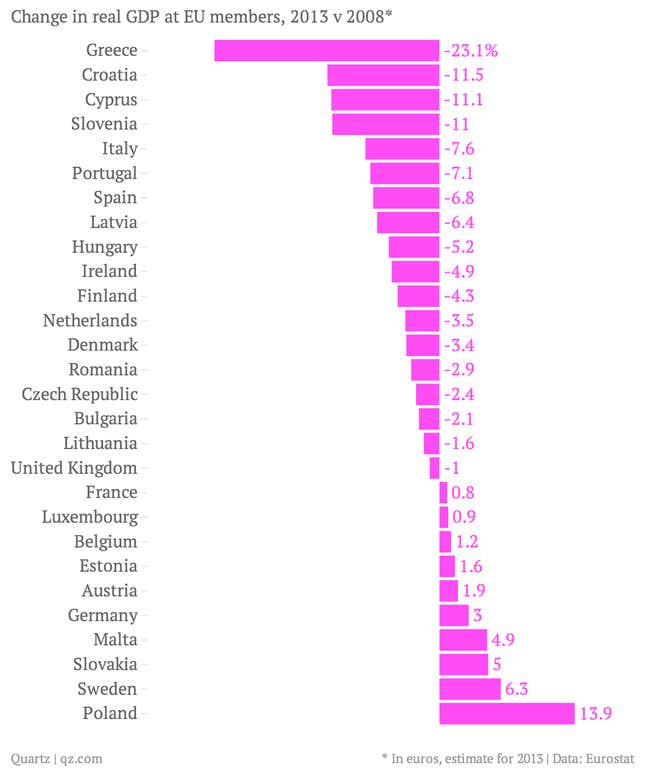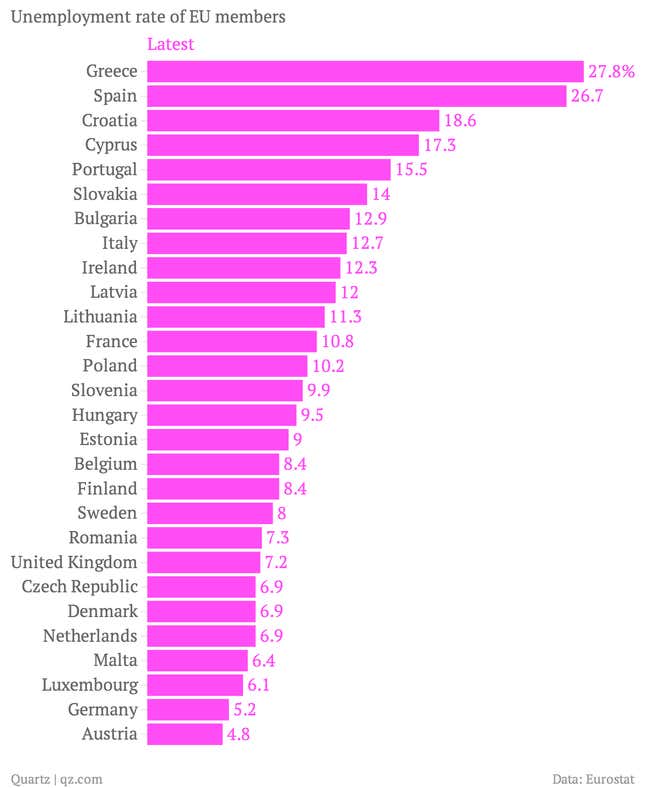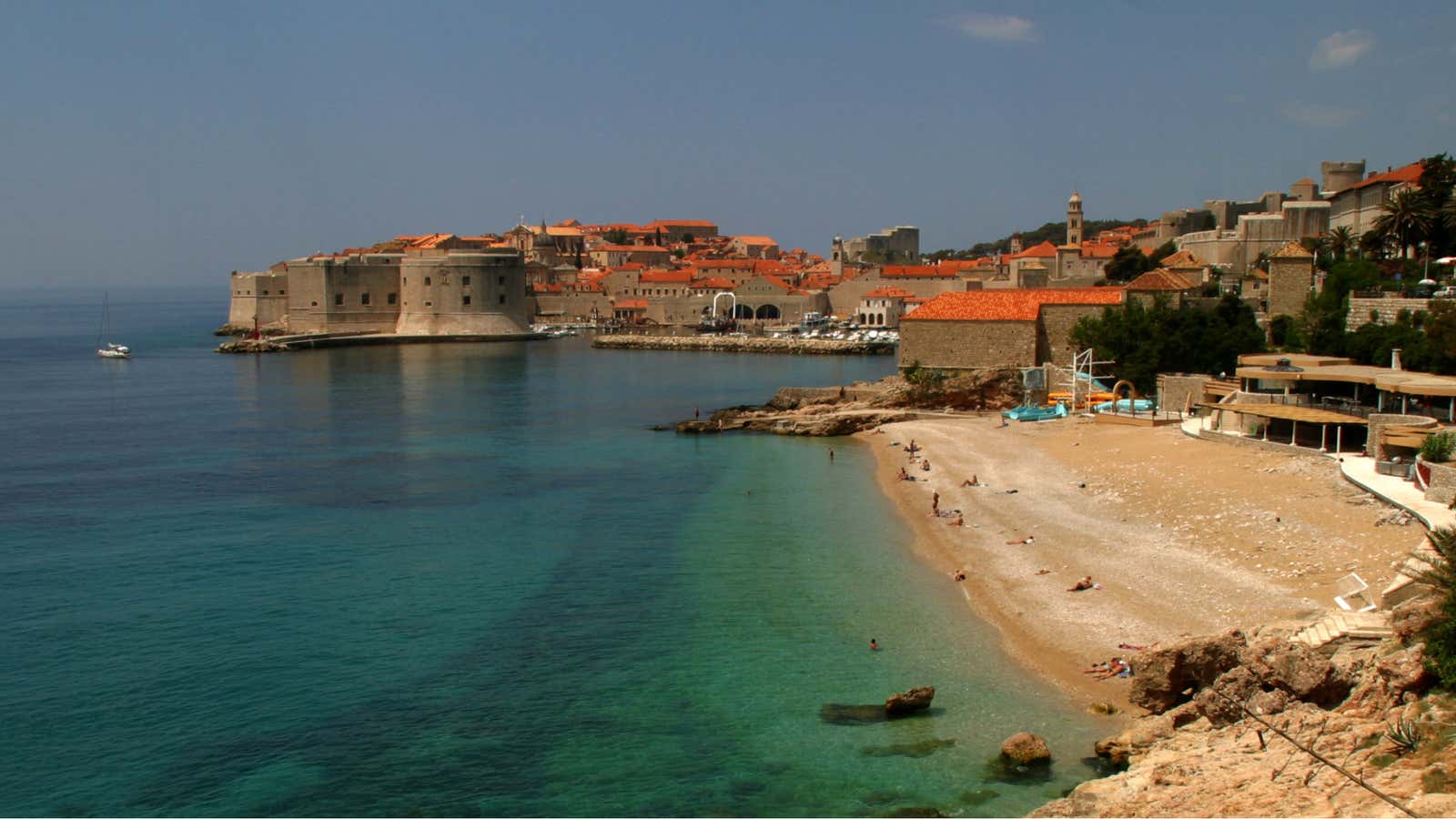Croatia joined the European Union last July, more than 10 years after first applying for membership. Some dubbed its accession “lucky” because, frankly, the economy is a mess. Should the EU have brought another recessionary, tourism-dependent country in southern Europe into the fold?
Today that question is surely being asked again. Standard & Poor’s has cut the country’s credit rating by another notch, dropping it deeper into “junk” territory. S&P reckons that Croatia’s economy will shrink for a sixth consecutive year in 2014; Greece is the only EU member whose GDP has fallen further over the last five years than Croatia’s.

The benefits to Croatia of EU membership are undeniable, but they are overwhelmed, says S&P, by short-term problems that the agency diplomatically describes as “labor market rigidities and a complicated business environment.” S&P frets about the slow pace of government reforms ahead of 2015 elections—a gridlock that may even mean Croatia fails to spend all of the funds the EU makes available for its poorer members. A recent survey ranked Croatia among the most corrupt countries in the EU.
Meanwhile, Croatia’s unemployment, like its economic contraction, ranks near the top of the EU charts. Whatever excitement there was in finally joining the EU, it soon gave way to a “morose mood“ among the country’s disgruntled citizens.

Against this gloomy backdrop, Croatia has been considered a candidate for a potential bailout from the day it joined the EU; the country’s central-bank governor, Boris Vujcic, is the latest to bat back these accusations. “Asking for an EU/IMF help program is always an option, but is not in the cards now,” he told the Wall Street Journal (paywall) last week.
However, Croatia’s GDP is only 0.3% that of the EU economy as a whole. A bailout, if it came to that, would put a very small dent in the bloc’s budget. What’s more, the political importance of bringing the once war-torn member of the former Yugoslavia into the EU clearly trumps the economic headaches that the nation of 4.3 million people brings to the group. As if to underline that, neighboring Serbia, with plenty of its own problems, this week opened formal talks to join the EU.




